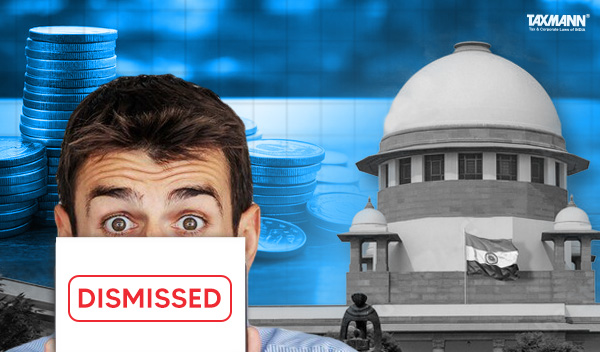Denial of ITC Justified as Assessee Claimed Higher Amount in GSTR-3B Than Available in GSTR-2A; HC Dismissed Writ
- Blog|News|GST & Customs|
- 2 Min Read
- By Taxmann
- |
- Last Updated on 26 December, 2024

Case Details: Laxmi Telecom vs. State of U.P. - [2024] 169 taxmann.com 550 (Allahabad)
Judiciary and Counsel Details
- Arun Bhansali, CJ. & Vikas Budhwar, J.
-
Ajay Kumar Yadav & Vijay Maurya for the Petitioner.
-
Manoj Kumar Kushwaha for the Respondent.
Facts of the Case
The petitioner received a SCN, pointing out discrepancies in ITC between the amounts claimed in GSTR-3B and those reflected in GSTR-2A/2B. The authority alleged a discrepancy of Rs. 7.7 lakh, while the petitioner claimed the actual difference was only Rs. 74,000. The petitioner responded to the notice with supporting documents, and part of their explanation was accepted. However, the authority still issued a demand for Rs. 7,41,218. The petitioner contended that the SCN was invalid because it did not include the necessary supporting documents and there was a procedural irregularity, as the final order was issued on August 27, 2024, instead of the scheduled hearing date of August 24, 2024.
The department contended that the petitioner’s response was fully considered, and part of their claim was accepted. Furthermore, the petitioner could challenge the order through the statutory appeal process, making the writ petition unnecessary.
High Court Held
The High Court noted that the lack of supporting documents with the SCN was not a valid objection since the petitioner had submitted responses without raising this issue. Additionally, the difference in dates between the hearing and the final order did not cause any significant prejudice to the petitioner. Therefore, the Court dismissed the writ petition, stating that the petitioner could pursue the matter through the alternative statutory remedy of filing an appeal.
List of Cases Referred to
- Shantanu Prakash v. State Bank of India & Ors. Writ Petition (Civil) No. 1730 of 2024 (para 3).
Disclaimer: The content/information published on the website is only for general information of the user and shall not be construed as legal advice. While the Taxmann has exercised reasonable efforts to ensure the veracity of information/content published, Taxmann shall be under no liability in any manner whatsoever for incorrect information, if any.

Taxmann Publications has a dedicated in-house Research & Editorial Team. This team consists of a team of Chartered Accountants, Company Secretaries, and Lawyers. This team works under the guidance and supervision of editor-in-chief Mr Rakesh Bhargava.
The Research and Editorial Team is responsible for developing reliable and accurate content for the readers. The team follows the six-sigma approach to achieve the benchmark of zero error in its publications and research platforms. The team ensures that the following publication guidelines are thoroughly followed while developing the content:
- The statutory material is obtained only from the authorized and reliable sources
- All the latest developments in the judicial and legislative fields are covered
- Prepare the analytical write-ups on current, controversial, and important issues to help the readers to understand the concept and its implications
- Every content published by Taxmann is complete, accurate and lucid
- All evidence-based statements are supported with proper reference to Section, Circular No., Notification No. or citations
- The golden rules of grammar, style and consistency are thoroughly followed
- Font and size that’s easy to read and remain consistent across all imprint and digital publications are applied



 CA | CS | CMA
CA | CS | CMA
